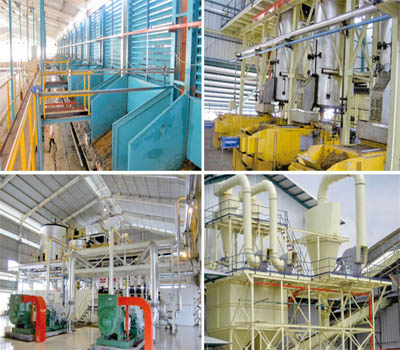Palm oil refining process
Palm oil is a kind of vegetable oil widely used in food, cosmetics and industry. Because the original palm oil contains impurities and bad smell, it needs to be refined to improve its quality and applicability. Palm oil refining mainly includes degumming, deacidification, decoloration and deodorization, and each link is very important to the quality of the final product.

The first is degumming process. The original palm oil contains colloids such as phospholipids and protein, which will affect the stability and appearance of the oil. Degumming is usually carried out by adding hot water or acidic solution to coagulate the colloid and separate it, thus improving the purity of oil.
Followed by deacidification process. The content of free fatty acids in palm oil is high, which may lead to rancidity and affect the taste. Deacidification usually adopts chemical method, that is, adding alkaline solution to neutralize fatty acids to generate soap, and then removing soap impurities by centrifugation or sedimentation. This step can significantly reduce the acid value of the oil.
Next, decolorization treatment. Primitive palm oil is usually dark yellow or orange, mainly because it contains pigments such as carotene. In order to obtain clearer oil products, the decolorization process will use adsorbents such as activated clay or activated carbon to adsorb and separate the pigments. This process can improve the appearance of oil and make it more suitable for the needs of food industry.
The last is the deodorization process. Volatile substances in palm oil may produce bad smell and affect its sensory quality. Deodorization usually adopts high-temperature steam treatment, and these volatile components are removed by evaporation, thus making the oil more pure and tasteless.
After the above refining steps, the quality of palm oil has been significantly improved, and it has become a stable, clear and versatile product. Refined palm oil is not only widely used in food processing, such as making biscuits, chocolates and quick-frozen foods, but also used in cosmetics production and biodiesel and other industrial fields.
In a word, palm oil refining is a complex and important process, which not only improves the use value of products, but also meets the needs of high-quality vegetable oil in different fields. In the future, with the continuous progress of technology, palm oil refining process will be more environmentally friendly and efficient, providing better products for the global market.
